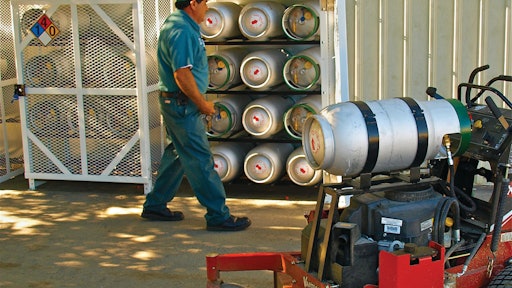Boosting Talent Retention in Propane Businesses
In the competitive propane industry, attracting and retaining top talent is essential for sustained growth and success. This article provides strategies for propane businesses to not only attract skilled professionals but also to ensure that they remain motivated and committed over time. Understanding Industry Needs Identify Key Roles Propane business teams require a range of… Continue reading Boosting Talent Retention in Propane Businesses
In the competitive propane industry, attracting and retaining top talent is essential for sustained growth and success. This article provides strategies for propane businesses to not only attract skilled professionals but also to ensure that they remain motivated and committed over time.
Understanding Industry Needs
Identify Key Roles
Propane business teams require a range of skills, from technical expertise in handling and distribution to customer service and sales prowess. Identifying key roles that drive business success is the first step in attracting the right talent.
Skill Development
Continuously updating the skill set of existing employees through training and development is vital. This not only enhances efficiency but also boosts employee satisfaction and retention.
Attracting Top Talent
Competitive Compensation
Offering competitive salaries and benefits is paramount to employee retention. This includes health benefits, retirement plans, and performance bonuses that collectively make the compensation package appealing.
Work Culture
A positive work culture that promotes teamwork, safety, and respect can significantly enhance job satisfaction. Transparent communication and a clear mission serve to align team members with the company’s goals.
Career Growth Opportunities
Clear paths for career advancement within the company encourage ambition and loyalty. Employees are more likely to stay if they see a future for themselves within the organization.
Retention Strategies
Employee Recognition
Regular recognition of employees’ hard work and achievements can greatly boost morale. This can be through awards, public acknowledgements, or simple thank-you notes.
Work-Life Balance
Encouraging a healthy work-life balance with flexible working hours, remote work options, and ample vacation time can significantly increase job satisfaction.
Feedback Mechanisms
Regular employee feedback through surveys or meetings can help address concerns before they lead to dissatisfaction. This also involves acting on the feedback to implement any necessary adjustments and improvements.
Leveraging Technology
Modern Tools and Equipment
Investing in the latest technology not only improves efficiency but also makes the work environment more stimulating for tech-savvy professionals.
Digital Training Tools
Utilizing online learning platforms for training ensures that employees are up-to-date with the latest industry standards and practices, enhancing their competence and confidence in their roles.
Community and Engagement
Team Building Activities
Regular team-building activities can strengthen relationships among staff members, fostering a sense of community and belonging while also boosting employee morale.
Corporate Social Responsibility (CSR)
Engaging in community service activities can enhance a company’s image and attract employees who value social responsibility.
Future Planning
Succession Planning
Training internal candidates for key positions ensures leadership continuity and demonstrates to employees the potential for upward mobility within the company.
Stay Interviews
Instead of conducting only exit interviews, progressive propane businesses conduct stay interviews to understand why employees remain with the company and what might make them leave.
Attracting and retaining top talent in the propane industry involves a multifaceted approach focusing on competitive compensation, positive work culture, career growth opportunities, and the effective use of technology. By adopting these strategies, propane businesses can ensure that they not only attract skilled professionals but also retain them, thus securing long-term success and stability.



